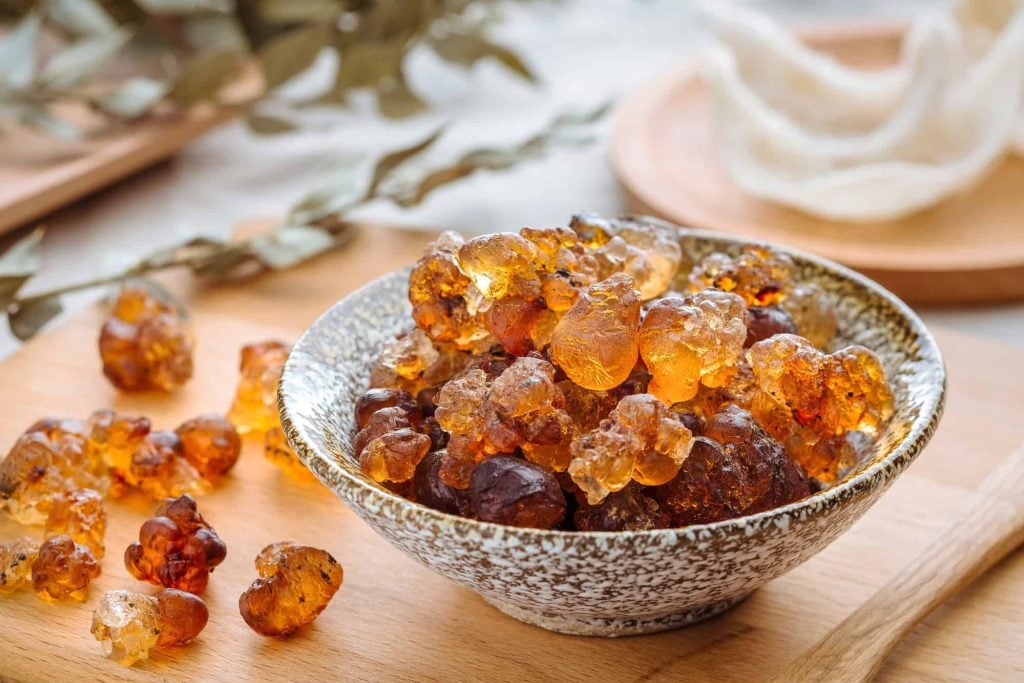Peach gum, a unique and lesser-known ingredient, is a natural resin harvested from the peach tree. This gooey substance, often used in traditional Chinese medicine, has gained popularity for its potential health benefits and its role in delicious desserts. But is peach gum truly a miracle ingredient, or is it just another passing trend?
In this article, we delve deep into the world of peach gum. We’ll explore its benefits, potential drawbacks, and how it differs from peach resin. We’ll also share a simple peach gum dessert recipe and discuss the cultural significance of this ingredient, including its representation in Hindi. So, whether you’re a seasoned foodie or a vegan, join us on this journey to uncover the truth about peach gum.
What is Peach Gum?
Peach gum, also known as peasant’s bird nest, is a natural resin secreted by Chinese wild peach trees. This resin hardens into a gummy, crystalline form on the tree bark and is often referred to as the “tear of the peach blossom” due to its appearance.
Peach gum holds a significant cultural and historical place in traditional Chinese medicine and culinary practices. It has been used for centuries to promote beauty, health, and longevity. In Chinese culture, peach gum is often associated with feminine beauty and youthfulness. It’s believed to nourish the skin, improve complexion, and delay aging.
Additionally, peach gum is valued for its potential health benefits, including strengthening the immune system, aiding digestion, and promoting overall well-being. It’s frequently incorporated into various desserts and herbal remedies, reflecting its deep-rooted cultural significance in Chinese traditions.
While peach gum isn’t a native ingredient to India, it has gained popularity in recent years, particularly among health-conscious individuals. In Hindi, peach gum is often referred to as “Tao Jiao” or “Peach Resin.” It’s increasingly being recognized for its potential health benefits and is incorporated into various desserts and herbal remedies.
As the interest in natural and holistic health grows in India, peach gum is gradually becoming a part of the culinary and wellness landscape. However, it’s important to note that it’s not as widely known or consumed as traditional Indian ingredients.
Benefits of Peach Gum
Peach gum, a natural resin from peach trees, has been used in traditional Chinese medicine for centuries. Studies have shown that peach gum polysaccharides (PGPs) possess antioxidant, antibacterial, anti-diabetic, and hypolipidemic properties. For instance, a study by Min Yang and colleagues at Yunnan Agricultural University demonstrated that PGPs could reduce oxidative stress and improve skin photoaging caused by UVB exposure.
Another research highlighted the hepatoprotective effects of PGPs against alcoholic liver injury, showing that they can moderate oxidative stress and promote lipid metabolism. Additionally, a review by Ken Yang Goh emphasized the emulsification properties of PGPs, suggesting their potential use as a food-grade emulsifier.
These findings collectively underscore the diverse health benefits of peach gum, making it a valuable addition to both traditional medicine and modern dietary practices.
It is believed to offer a range of health benefits, including:
- Skin Health: Rich in antioxidants, peach gum can help protect the skin from damage caused by free radicals, promoting youthful and radiant skin.
- Digestive Health: It may aid in digestion and soothe digestive issues like bloating and constipation.
- Immune System Support: By boosting the immune system, peach gum can help the body fight off infections and illnesses.
- Anti-Aging Properties: Some studies suggest that peach gum may slow down the aging process by promoting cellular regeneration and reducing oxidative stress.
- Blood Sugar Regulation: It may help regulate blood sugar levels, making it beneficial for individuals with diabetes or those at risk.
- Stress Relief: Peach gum is believed to have calming properties that can help reduce stress and anxiety.
While traditional uses of peach gum are well-documented, there is limited scientific evidence supporting some of its claimed benefits. More research is needed to fully understand its effects.
It’s important to note that while peach gum offers potential health benefits, it’s crucial to consume it in moderation and consult with a healthcare professional before incorporating it into your diet, especially if you have underlying health conditions or are taking medications.
What Are the Disadvantages of Peach Gum?
While peach gum offers numerous health benefits, there are some potential disadvantages to be aware of:
- Digestive Issues: Peach gum is a colloidal substance that can be hard to digest. Consuming it daily may increase the burden on the spleen and stomach, potentially leading to gastrointestinal diseases.
- Not Suitable for Everyone: People with a “cold” body type, poor digestion, or specific dietary restrictions should avoid peach gum.
- Impurities: Due to its natural origin, peach gum can contain impurities like tree bark and dust. High-quality peach gum is manually selected to minimize these impurities, but lower quality versions may still have noticeable amounts.
It’s always a good idea to consult with a healthcare professional like Trish Tucker May before adding new supplements or ingredients to your diet, especially if you have any pre-existing health conditions.

Who Can’t Eat Peach Gum?
While peach gum offers numerous health benefits, certain individuals should avoid consuming it due to potential adverse effects just as mentioned above:
- Individuals with Allergies: Those with known allergies to peach or related plants should avoid peach gum to prevent allergic reactions.
- Pregnant and Nursing Women: Due to limited research on the effects of peach gum during pregnancy and breastfeeding, it is advisable for pregnant and nursing women to consult with a healthcare professional before consuming it.
- People on Specific Medications: Those taking medications for blood pressure, blood sugar, or other conditions should consult with a healthcare provider, as peach gum may interact with certain medications.
Recent studies, such as the one by Noer et al. (2023), have shown that while peach gum has beneficial properties, it is essential to consider individual health conditions and consult with a healthcare professional before adding it to the diet.
How to Cook Peach Gum
Ingredients:
- 1 cup dried peach gum
- 8-10 dried red dates
- 5-6 dried longan
- 1 piece of dried ginger
- Rock sugar or honey to taste
- Water
Instructions:
- Soak the dried peach gum in water overnight or for at least 6 hours. This softens the gum and makes it easier to clean. Drain the water and remove any impurities or debris from the peach gum.
- Wash the dried red dates and longan. Cut the dried ginger into thin slices.
- In a pot, add the soaked peach gum, red dates, longan, ginger, and enough water to cover the ingredients. Bring the mixture to a boil over high heat.
- Reduce the heat to low and let the mixture simmer for 1-2 hours, or until the peach gum is soft and translucent. Add rock sugar or honey to taste and adjust the sweetness.
- Serve the peach gum dessert hot or chilled.
Tips:
- For a richer flavor, you can add other ingredients like snow fungus or lotus seeds.
- The cooking time may vary depending on the quality and quantity of the peach gum.
- Adjust the sweetness to your preference.
- You can also add a few drops of pandan extract for a fragrant twist.
Enjoy this nourishing and delicious dessert!
Is Peach Gum Fattening?
Peach gum is not considered fattening. In fact, recent studies have highlighted its potential health benefits, particularly in managing metabolic syndrome components. For instance, a 2023 study by Noer et al. showed that peach gum could improve lipid profiles, reduce fasting blood glucose, and enhance insulin sensitivity in rats with metabolic syndrome.
Another study by Bingjie Zhou and colleagues in 2024 found that peach gum polysaccharides have antioxidant properties and can promote lipid metabolism, which may help in preventing weight gain. These findings suggest that peach gum can be a beneficial addition to a healthy diet without contributing to weight gain.
Does Peach Gum Contain Collagen?
Yes, peach gum does contain collagen. Recent studies have highlighted its rich content in collagen, along with other beneficial compounds like galactose, rhamnose, and amino acids. A 2023 study by researchers at Yunnan Agricultural University found that peach gum polysaccharides (PGPs) can promote collagen production, which contributes to healthier skin. The presence of collagen in peach gum makes it a popular ingredient in skincare and beauty products, as it is known to improve skin suppleness and reduce signs of aging.
What’s the difference between peach gum and peach resin?
While peach gum and peach resin are often used interchangeably, they are not exactly the same. Peach resin is the natural substance secreted by peach trees, primarily for protection. It solidifies into amber-like crystals and can be harvested.
Peach gum, on the other hand, is a processed form of peach resin that has been cleaned and prepared for consumption. It’s often dried and sold in pieces, ready to be soaked and cooked. While both share similar properties and benefits, peach gum is more commonly used in culinary applications due to its convenient form and pre-processed nature.
FAQs
What is peach gum good for?
Peach gum is believed to offer various health benefits, including improved skin health, enhanced immunity, and potential anti-aging properties. It’s also used to soothe the digestive system and may help regulate blood sugar levels.
Is it okay to eat peach gum every day?
While occasional consumption of peach gum is generally safe, it’s best to consult with a healthcare professional before incorporating it into your daily diet, especially if you have underlying health conditions or are taking medications.
Does peach gum taste like peach?
No, peach gum doesn’t have a strong peach flavor. It’s often described as having a slightly sweet and neutral taste, making it versatile in various dishes and desserts.
Is peach gum rich in collagen?
While peach gum doesn’t directly contain collagen, it’s rich in amino acids, which are the building blocks of collagen. Consuming peach gum may indirectly support collagen production in the body.
Final Thoughts
Peach gum, once a hidden gem, has emerged as a popular ingredient in the world of health and wellness. By understanding its properties, incorporating it wisely, and enjoying it in delicious desserts, you can unlock the potential of peach gum and enhance your overall well-being.







Comments are closed.